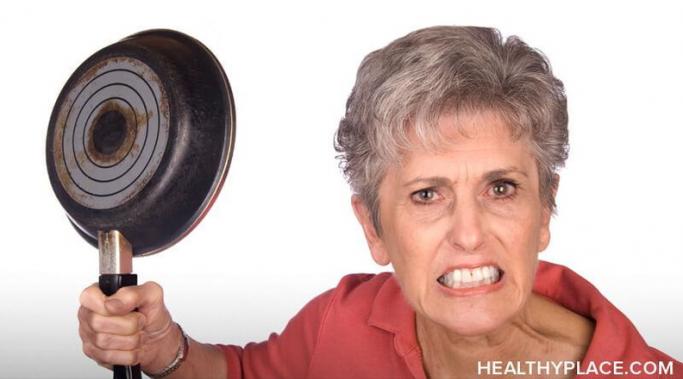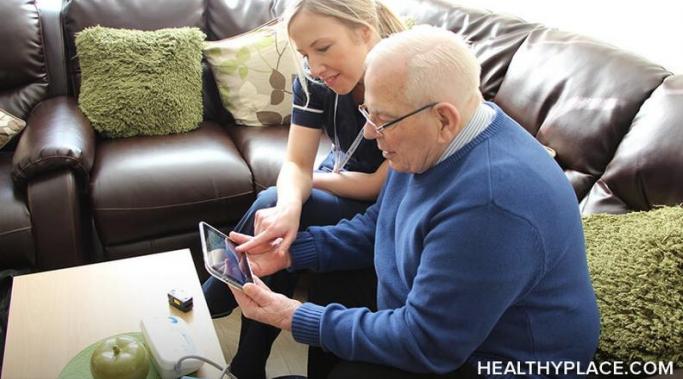Posttraumatic stress disorder, or PTSD, is an anxiety disorder that develops as a result of a traumatic event. According to Dr. Aphrodite Matsakis, PTSD occurs in 2% of those exposed to an accident, 25 -33% of those exposed to a community disaster, 25% of those who experience traumatic death of a friend or loved one, 30% of Vietnam veterans, 65% of those assaulted, 84% of battered women, and 35-92% of rape victims. Flashbacks are a common symptom of PTSD. Here's to use coping skills to fight the flashback symptom of PTSD.
Recovering from Mental Illness
Recently, I remembered the time I was kicked off a mission trip to Mexico because of my "demonic influence" (depression). It's a wound that has not yet fully healed, largely because it altered my career path (I was going to become a missionary until my diagnosis became a big red flag). Many christians believe three lies about mental illness.
Spirituality can be vital to recovery from mental illness. But, like many things, spirituality and mental illness is a double-edged sword. While belief in a Higher Power can aid mental illness recovery, unhealthy spiritual beliefs can make our mental illness symptoms worse. But what are some warning signs of unhealthy spirituality? How do we know if we have what one writer called "toxic faith?"
I was in college when Columbine happened and the university grew concerned that one of their students with mental illness might decide to copycat the shooting. So they treated me to a no-knock, no-warrant search of my dorm room out of concern I might become violent--even though I had no history of violence and no warning signs. The director of the counseling center, my therapist and even the dean said I was no threat, and I was allowed to graduate, even though I was kicked out of the dorm. The university was worried about me--or more accurately, about my conduct--because I was a mental health consumer. But are people with mental illness more violent than people without mental illness?
Some years ago, the notion of peer support for the mentally ill became an important component of mental health recovery. The mental health community has embraced peer support as crucial to mental health recovery but how valuable is it?
It's the opportunity of a lifetime. I'm in the process of raising money for a mission trip to Kenya. There are several obstacles, but I'm guardedly optimistic (How Not to Expect Too Much From Yourself). This opportunity--and the challenge that comes with it--made me think about healthy goals and reasonable expectations when recovering from mental illness. I've come to three conclusions.
When I was at church yesterday, I struck up a conversation with a visitor. She mentioned she had a son with mental illness - Asperger's syndrome and bipolar disorder. I said I was a mental health consumer who also had Asperger's Syndrome, and we began to talk about life with a severe mental illness. She said several things which stood out to me, all of which could help mentally ill children. Here are three ideas that could help mentally ill kids, through the eyes of a mom.
It's hard enough to decide to seek mental health treatment, but when you factor in delays, it's even more daunting. When I was discharged from the Army, they gave me a 30-day supply of my psychiatric medications and a list of mental health providers in my area (I am not eligible for Veteran's Administration (VA) benefits because I wasn't in long enough.) It took me three months to get in to see a psychiatrist in private practice--I was lucky. It can take up to a year to see a psychiatrist at the VA.
This past week brought a lesson in how vital self-care is to mental health and mental health recovery. Self-care can be overlooked when we are suffering from depression or experiencing other mental illness symptoms. I have a dear old friend who many consider the sweetest person they’ve ever known or may ever know. This dear woman has always been the type who will go to the ends of the earth to help people, and not just friends and family.
Recently I had an upper endoscopy to find out why I was having stomach pain and nausea. The study basically confirmed what I already knew--there is inflammation in my stomach. Someone remarked to me "It must be good to know it's not all in your head!" That made me think about what often happens when psychiatric patients need medical treatment.









